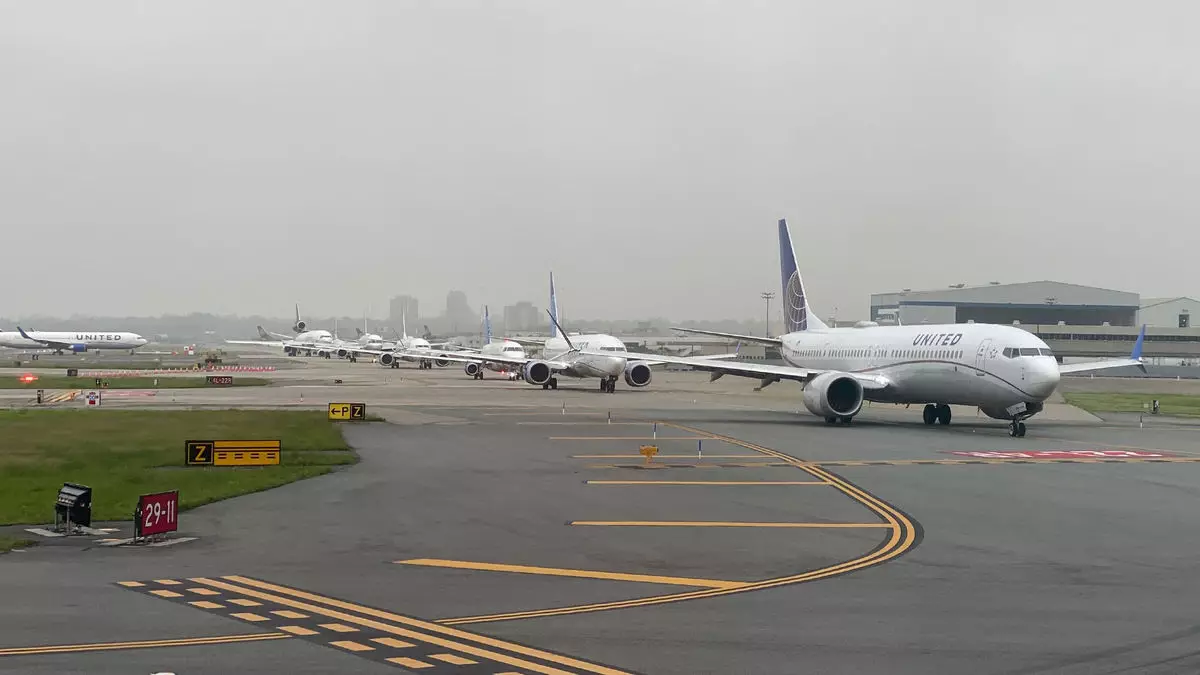As the travel industry continues to grapple with ongoing disruptions, the recent turbulence at Newark Liberty International Airport (EWR) has become a focal point for professionals and travelers alike. With operational cutbacks, delayed flights, and technology failures creating chaos, many in New Jersey are reevaluating their travel options. The case of Rick Ardis, a seasoned travel advisor and owner of Ardis Travel, encapsulates this newfound urgency among travelers to seek alternatives. Ardis’ proactive decision to change his itinerary by driving to Lehigh Valley Airport (ABE) rather than risking cancellations at Newark illustrates a strategic pivot prompted by industry volatility.
Ardis was primarily motivated by the airline’s dramatic adjustment of flight schedules. Knowing that United Airlines—Newark’s dominant carrier—was implementing flight cuts, he opted for the ABE route, successfully dodging what could have been a disastrous fallout involving his original Newark itinerary.
The Impact of Operational Failures
The chaos in Newark hasn’t just been an inconvenience; it has sparked anxiety among travelers and travel advisors alike. With a significant drop in reliability due to an air traffic control outage in Philadelphia that majorly affected Newark’s operations, the fragility of the current air travel system has been exposed. Independent travel advisors, including Parri Mahan from Freehold, N.J., have become frontline responders to burgeoning client fears. Mahan reported an uptick in client inquiries regarding the reliability of Newark, juxtaposing her professional insights against the backdrop of industry challenges.
However, some travelers, despite apprehensions, choose to stick with Newark. Local advisors believe the airport’s convenience often outweighs frustrations caused by delays and cancellations. Melissa Sanchez, the owner of Spellbound Vacations, pointedly observed that for many clients, the hassle of navigating alternative airports like LaGuardia or JFK is a major deterrent. What emerges in this scenario is the clear dichotomy between convenience and reliability, leading some to embrace the tumultuous Newark experience as a necessary compromise.
Trimming the Flight Schedule: A Double-Edged Sword
United Airlines’ voluntary reduction of operations—capped later by the Federal Aviation Administration (FAA)—is a controversial but potentially beneficial policy aimed at reducing cancellations and delays. The reduction of operational flights is a complex remedy; while it stabilizes the system and provides a degree of predictability, it does not eliminate uncertainty for travelers with booked itineraries. Many worry about how these changes could judicially affect their future travel plans, leading to increased consultations with travel advisors. With the complexities surrounding flight cancellations and long delays looming large, many travelers are leaning on their advisors’ expertise to navigate the situation.
For instance, Mahan’s recent interactions with clients headed for Europe in September underline this reliance. her ability to provide updated information and assurance speaks volumes about the evolving role of travel advisors as navigators in an uncertain landscape.
The Human Touch in Travel Advisory
Today’s travel climate starkly highlights the value of personalized service. When faced with a cancellation, Ardis stepped in to overhaul a client’s disrupted travel plans, securing an upgraded seat and an earlier flight. His intervention not only salvaged the trip but also demonstrated the added value that travel advisors bring. As clients grapple with flight changes and airport woes, such well-informed interventions make a world of difference.
Sally Jane Smith of TravelSmiths also emphasized her team’s proactive approach in tracking Newark’s challenges, reaffirming the necessity for travel professionals to remain alert in these tumultuous times. However, as Peter Vlitas of Internova Travel Group noted, some clients are exploring options beyond Newark, indicating a growing trend towards flexibility in travel planning.
Adapting to the New Normal
As travel continues to emerge from the shadow of pandemic restrictions, the recent turbulence at Newark Airport acts as a microcosm of the broader industry landscape. Travelers are increasingly forced to make adaptive choices, and their preferences are undergoing dynamic shifts. As more travelers become aware of potential disruptions, a movement towards alternative airports is evident, particularly for those with strict schedules.
The evolving nature of travel has brought forth a renewed appreciation for travel advisors. Their role has transitioned into one of strategic navigators, helping clients not only manage logistics but also alleviate anxiety surrounding travel disruptions. Whether it’s through rebooking issues or simply providing valuable information, advisors are proving to be indispensable assets in a world where the travel experience is far from straightforward. This shift highlights an intriguing paradox in the industry: even amidst chaos, new opportunities for engagement and trust have emerged, reshaping how travelers and advisors interact in an increasingly complex travel environment.

